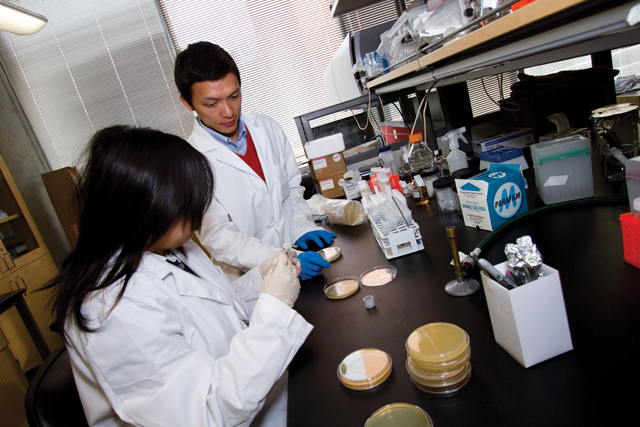
NSF grant funds project to expand mathematical framework for engineered gene networks

Xiao Wang, assistant professor, School of Biological and Health and Systems Engineering, was awarded a grant from the National Science Foundation to use a combination of mathematical, engineering and biological techniques to develop mathematical methods to expand the analysis of gene networks from two dimensions into higher dimensionalities.
Novel systematic understanding of cell differentiation and reprogramming derives from the study of synthetic multistable gene networks. Synthetic multistable systems provide unique opportunities to study the core mechanisms of cell pluripotency and differentiation because highly connected small transcription networks regulating cell differentiation have topological similarities with the synthetic gene networks under consideration in Wang’s project. Constructing and analyzing small multistable gene network deepens our understanding of multistability, which can arise from similar topologies in stem cell gene regulations. Additionally, mathematical theories and tools to study high dimensional nonlinear dynamics and stochasticity in the context of gene networks are developed.
Wang’s goal is to expand the theoretical efforts to study cellular multistable systems and fill the gap between technological progress and available analytical tools to facilitate future biotechnological development.



































